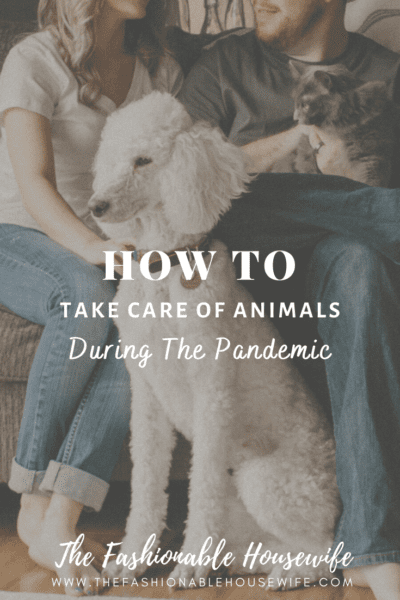
There is currently no evidence that animals can transmit the coronavirus. However, during the pandemic and period of self-isolation, you should take care of safe conditions for you and your pet. Experts from the UK’s People’s Dispensary for Sick Animals (PDSA) provide some advice on caring for pets during the pandemic and how to keep your family safe from coronavirus, including your fur babies.
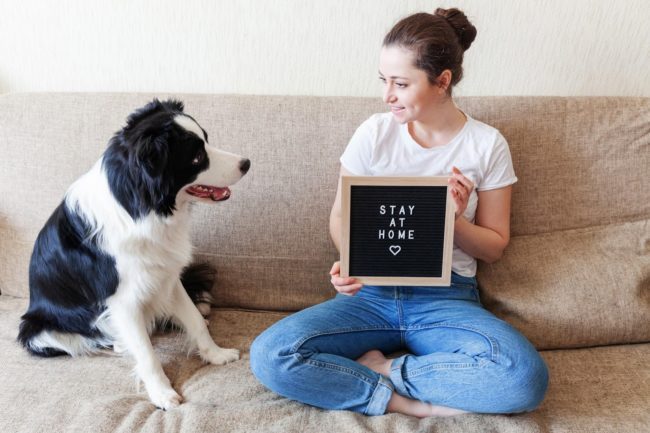
Follow Special Rules Of Hygiene
84% of pet owners say that having a pet has a positive effect on their mental health. That is why it is not necessary to give your pet to someone else during treatment.
If your pet stays with you, try to minimize your contact. Be sure to wash your hands thoroughly before and after touching your pet, food, toys, or waste disposal. Try not to kiss your pet and do not allow to lick you, especially the face. Also, do not share your food with them.
If your pet needs a veterinary examination during your period of self-isolation, call your veterinarian first. While self-isolation you have enough time to research and choose the best local specialist.
If you find it physically challenging to take care of the animal – ask for help from family or friends. If none of your acquaintances can help you, consider other options. Alternatively, you can use the services of hotels for animals or look for community initiatives in your city.
Do Not Neglect Proper Care
You can’t leave your home during self-isolation, so you can’t go for a walk with your pet on your own. However, a daily walk is significant for the physical and mental health of dogs and cats, if they are accustomed to going outside. If you have any acquaintances or friends who can help, ask to take your pet for a walk. Minimize the transmission process and make sure you both wash your hands before and after handling the pet. Keep at least a 2-meter distance.
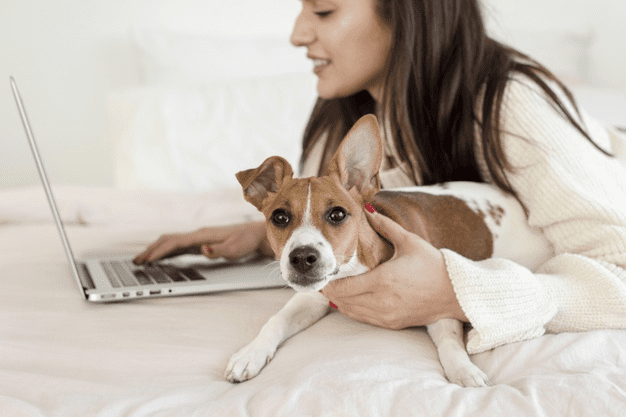
Also, do not forget to bathe your pet regularly, using an emollient pet shampoo. This is because the virus can live on a variety of surfaces, including the fur of pets. “Theoretically, if someone coughed a virus over your pet and then you stroked it and touched your mouth, eyes or nose, you could get the virus,” said National Health Service (NHS) doctor Dawn Harper. Therefore, after a walk, you need to wash paws thoroughly and regularly trim their nails too.
The perfect frequency to cut most dog’s nails is once a week. It is advisable to cut at least once a month since, with the growth of the claw, the vessel approaches its end, and there is a risk of bleeding during the procedure. If you are at a loss to attempt this task, you can contact the veterinarian, where they can be safely and effectively done for a fee. Or you can ask the veterinarian to show how to properly cut the claws of your pet.
Stock Up On The Right Amount Of Food
Make sure you have a supply of pet food. Also, it is essential to have vitamins for your pets. For example, it is necessary for your cat’s development. As an associate veterinarian, Dr. Chyrle Bonk notes on the article at ThePets, it is vital to give vitamins that made from organic and natural substances. It would help if you considered it during the pandemic. If you do not have enough supplies, you can ask friends for help, or order the necessary online. Just ask the courier to leave the food at your door without entering the apartment. Remember to close your pet in another room before opening the door.
Hygiene And Health
The main rule to consider after a walk with a dog us to wash your dog’s paws after walking according recommendations. It is advisable to do it with a special shampoo for animals, or with ordinary household soap. The shell of the virus is partly composed of lipids (Covid-19 also has a similar structure) – in simple words, they are fats, and they lose their integrity when in contact with any detergent.
Do not forget to dry the animal’s paws after washing. Wet feet are a favorable environment for bacteria and fungi. If your pet is afraid of the hairdryer, it is best to dry your paws thoroughly with a cotton or paper towel.
Wash your hands after touching animals. Besides, now is not the best time to kiss animals, because it is in direct contact with your mucous membranes. Therefore, it is better to avoid it. This applies not only to the risk of spreading coronavirus but also to other viruses and bacteria.
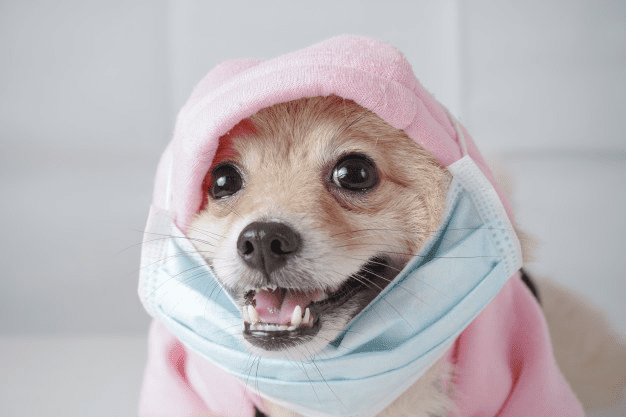
It is recommended not to let the animals into bed. Pay special attention to the pillows on which we sleep, because we come into contact with them with the mucous membranes of the mouth and eyes. Now it would be appropriate to make the bedroom a pet-free area or at least not allow the animals to walk on the pillow and lie on it.
Do not allow animals to come into contact with things and your shoes in which you go outside. Try to keep shoes away from animals, for example, in a tight bag, or you can take it to the balcony or close it in a closet, where none of the animals will get it. It is also advisable to do the same with your outerwear, in which you have been in contact with people or just went outside. By the way, now the best shoes are rubber boots that can be washed thoroughly.
Regularly wash the things in which you go outside. It is advisable to choose clothes that can be washed at high temperatures. This also applies to animal ammunition – it should be cleaned at least once every two days. Or at least rinse in soapy water after each walk during the pandemic.
Beds for your dogs/cats should be regularly exposed to the sun or washed. As an option – cover with sheets, which also need to be washed from time to time.
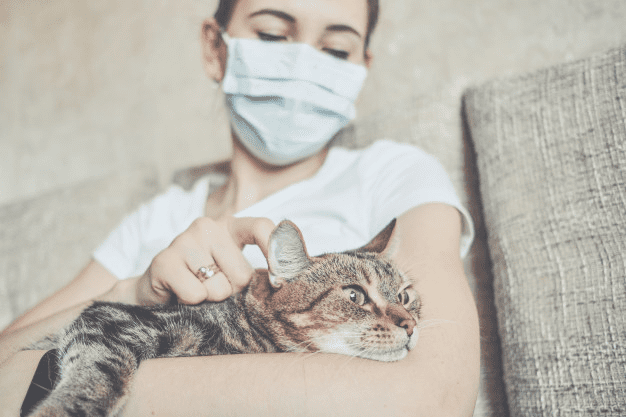
Wet cleaning should be performed once a day. This applies not only to the floor but also to all surfaces that it is desirable to wipe with a rag with special tools. You can use laundry soap. Means with essential oils/chlorine can be used, but after that, it is necessary to ventilate the room and make sure that the funds do not remain on the surface – the animals can enter there and lick. This can cause indigestion and even burns of the mucous membranes. There are drugs, even organic, that can cause allergic reactions in animals. However, do not despair of endless and fanatical cleaning! After all, it can scare your animals!
Ventilate the room as regularly as the weather allows during the pandemic. Do not open the windows so that the animals can get stuck or jump out. At the same time, ventilation and ultraviolet light are essential for the prevention of viral diseases.
More Advice:
- avoid contacts with other dogs and their owners;
- if the dog is prone to picking up things on the street, it is desirable to use a muzzle every time outside. Important note: the dog must be accustomed to it;
- if there is a problem with the behavior, quarantine is a great reason to contact a behavioral specialist for online advice on this;
- use the same diet and avoid giving your animals food that may cause stomach diseases.



